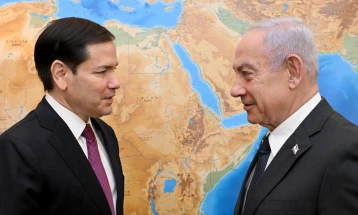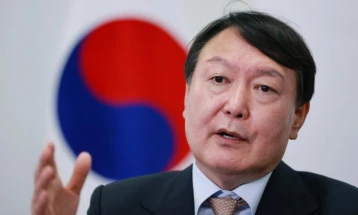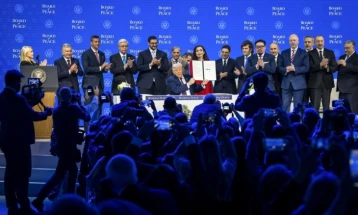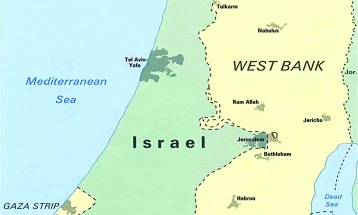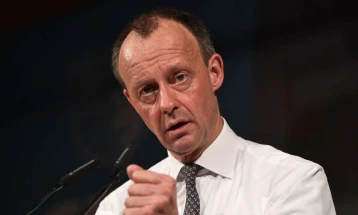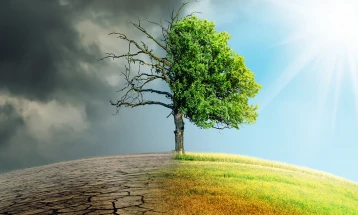EU foreign ministers adopt new sanctions regime for Russia
- EU foreign ministers on Monday adopted a new sanctions regime to punish serious human rights violations in Russia. The new system of sanctions was established following the death of Russian opposition leader Alexei Navalny and targets individuals and organizations responsible for the repression of the opposition.
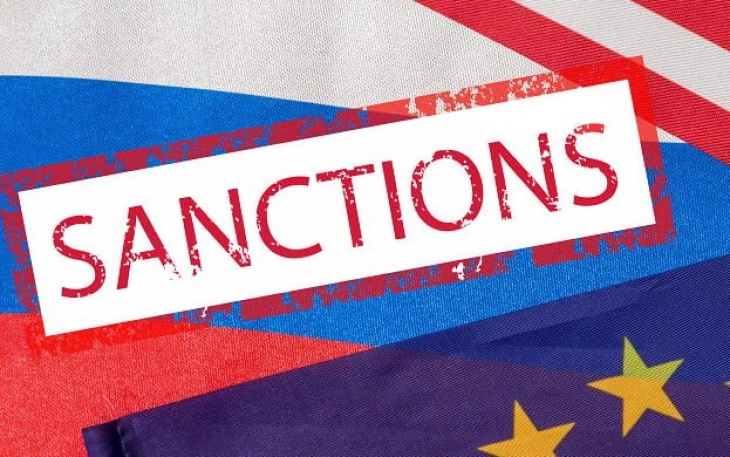
Brussels, 27 May 2024 (dpa/MIA) - EU foreign ministers on Monday adopted a new sanctions regime to punish serious human rights violations in Russia, diplomats confirmed to dpa.
The new system of sanctions was established following the death of Russian opposition leader Alexei Navalny and targets individuals and organizations responsible for the repression of the opposition.
The EU sanctions regime is specifically set up for human rights abuses in Russia in honour of Navalny. Around 20 targets have been selected for inclusion in a first listing, diplomats said.
These punitive measures are separate to the wide-ranging economic sanctions imposed on Russia for the full-scale invasion of Ukraine. Sanctions likewise include punitive measures, notably entry bans to the European Union and a freeze on assets held in the bloc.
After Navalny's death in a penal camp in Siberia in mid-February, EU members imposed sanctions on 33 people from the Russian judiciary and political system in an existing sanctions regime.
The two penal colonies where Navalny was last imprisoned were also added to the EU sanctions list in a symbolic move.
There is still no agreement reached on a 14th round of sanctions on Russia for the war in Ukraine. For the first time Russia's lucrative liquefied natural gas (LNG) sector is under consideration.
EU foreign ministers are meeting in Brussels to review the ongoing wars in Ukraine and Gaza, as well as the forthcoming election in Venezuela and Georgia's new "foreign agents law."
Among other things, the use of profits from Russian assets frozen in in the EU to buy military aid for Ukraine is up for discussion.
Last Tuesday, EU finance ministers gave final approval to use the proceeds of the assets - but not the underlying assets themselves - for "Ukraine's military self-defence and reconstruction," said a post on the X account of the Belgian government, which is chairing talks.
The G7 - which includes the United States, Canada, Britain, and Japan, as well as three EU countries - is also discussing the possibility of using the proceeds of frozen Russian assets to help Ukraine.
Ukrainian Foreign Minister Dmytro Kuleba is expected to brief them on the progress of the war by video link at the start of the meeting.
German Foreign Minister Annalena Baerbock announced €60 million ($65 million) in new humanitarian funding for Ukraine on arrival at the meeting.
Another topic for discussion is the tense situation in the Middle East and the war in Gaza.
EU foreign ministers plan to hold informal talks with their counterparts from Saudi Arabia, Jordan, Egypt, the United Arab Emirates and Qatar, plus the secretary-general of the League of Arab States.
Germany is to increase humanitarian aid for Gaza by nearly €39 million, diplomats told dpa, with the emergency health aid used to help with outbreaks of disease.
Baerbock said the situation in Gaza was terrible and that "this suffering cannot continue for another day" in her call for a humanitarian ceasefire.
Ministers are expected to discuss whether or not to send EU election observers to monitor the forthcoming presidential in Venezuela, due to be held on July 28.
Also on the agenda is Georgia's recent adoption of a law requiring foreign-funded organizations to register as "foreign agents."
On May 15, EU foreign affairs chief Josep Borrell said in a statement: "the spirit and content of the law are not in line with EU core norms and values."
At first, the European Commission also jointly attributed the statement to EU enlargement commissioner Olivér Várhelyi, but it removed his name later.
Várhelyi was nominated for the commission by Hungary, which in 2017 adopted a law requiring foreign-funded organizations to register as "organizations supported from abroad."
Late last year, Hungary adopted a "Defence of National Sovereignty" law allowing authorities to investigate foreign-funded organizations.
Photo: MIA archive

